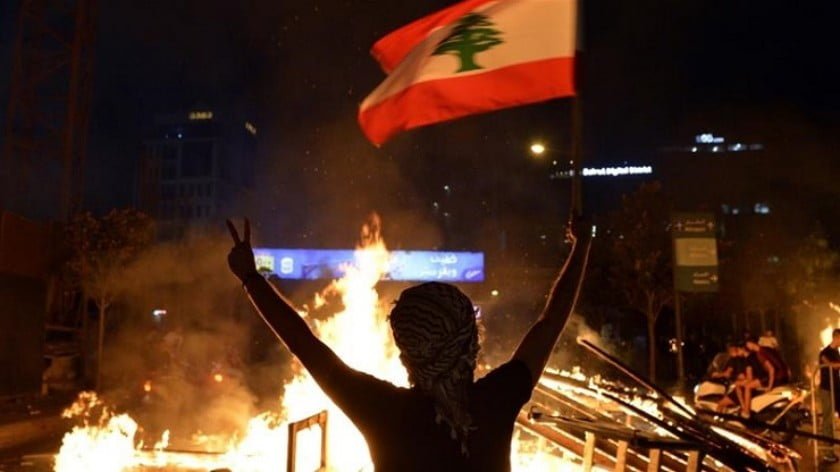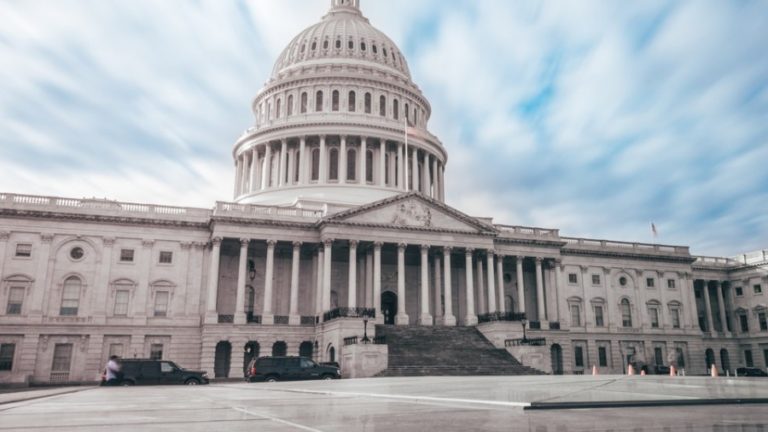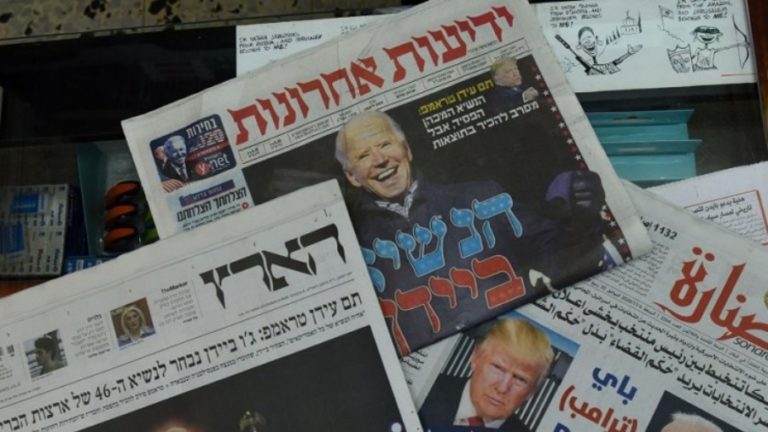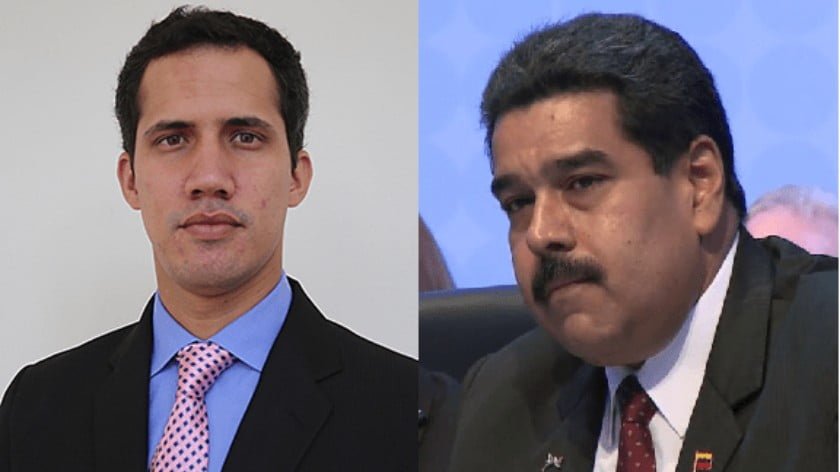Tensions in Lebanon are Rising
Protests, stemming from an internal crisis, have once again erupted in Lebanon. In light of worsening corruption throughout the country, prices of staple foods are rising despite the government’s attempts to stop the Lebanese pound from decreasing in value. Demonstrations are taking place in Beirut, Tripoli as well as other towns and cities. Protesters have been blocking roads with burning tires while police and army forces have been trying to drive them out. Activists have set local bank branches on fire and are demanding the government step down.
Some observers have pointed out that the main reason for the protests, which restarted after an interlude caused by the Coronavirus pandemic, was a rumor about a record fall in the value of the Lebanese pound (to 7,000 LL to $1.00) despite the fact that the news was subsequently proven false (the national currency rate, in fact, remained the same – about 1,500 LL to $1.00).
Riad Salamé, the Governor of Banque du Liban (the central bank of Lebanon) since 1993, who the demonstrators hold primarily responsible for the crisis and the purported fall in the value of the Lebanese pound, has said he was not to blame for the country’s economic woes and has alleged that a systematic campaign to discredit him was being waged.
In reality, there are a number of reasons for the renewed demonstrations in Lebanon. Unquestionably, the financial crisis and corruption at the highest levels of government are quite serious issues fueling the protests. Lebanon desperately needed investments and a stable economy in order to rebuild itself after the civil war (which had lasted from 1975 to 1990) ended. One of the approaches used to attract such investments involved pegging the Lebanese pound to the US dollar (at the exchange rate of approximately 1,500 LL to $1.00), thus stabilizing the national currency and lowering the risk of devaluation, as well as ensuring relatively high deposit interest rates. Initially, all of these measures resulted in large capital inflows into the banking sector. As a consequence, for almost two decades, Lebanon was a safe haven in comparison to the highly volatile Middle East. The nation’s economy greatly benefited from this instability because countries of the region experiencing political crises or Arab Spring uprisings preferred to deposit their funds in prosperous and high-yield banks in Lebanon. The influx of foreign currency and money transferred by numerous members of the Lebanese diaspora ensured the flow of necessary funds into Lebanon. External loans that the country took out also played an important role.
However, after the economic crisis of 2008, the situation in the nation began to quickly deteriorate. Investments from nations in the region into Lebanon’s banking sector declined, and imports began to grow while exports remained low. All of these mistakes in managing the country’s economy led to a constantly increasing national budget deficit. As a result, in 2018, it exceeded 10% of the GDP, and the central bank’s dwindling foreign currency reserves meant that it was more difficult to preserve the fixed exchange rate. After servicing foreign loans became a problem, the Lebanese government was forced to make a decision to slash spending on social needs and impose new taxes, such as a much hated levy on WhatsApp calls. And this led to social unrest, protests and resignation of top government officials. On January 27, the Parliament of Lebanon passed the 2020 budget amid a financial crisis and anti-establishment protests. The new budget aimed to reduce the “deficit to around 7 percent of gross domestic product”.
In addition, the Lebanese government decided to request financial assistance from the International Monetary Fund (IMF). May 13 saw the start of the first round of talks between the IMF and Lebanon, which is seeking some $10 billion in aid. However, organizations such as the IMF do not simply give but lend money to countries in need. For instance, Ukraine is one of “IMF’s four largest borrowers” making it dependent on money from this international donor. Since negotiations on the loan to Lebanon depend on the voting power of IMF members, such as the United States, China, France, Germany, the UK and other countries (that have the largest quotas), it is quite clear that these nations will subsequently gain effective tools for influencing politics in Lebanon and will use them to achieve their own interests, including those related to the “resolution” of crises in the Middle East. It is, therefore, reasonable to expect that efforts will be made to push factions loyal to Iran out of Lebanon. In fact, US Ambassador to Lebanon Dorothy Shea has, on more than one occasions, hinted this was part of US policy in the nation. Another means of applying pressure on Lebanon the United States is likely to use is, unquestionably, the Caesar Act (or the Caesar Syria Civilian Protection Act) that targets individuals and businesses, including those from Lebanon, who provide funding or assistance to Bashar al-Assad’s government.
According to some, Israel has undoubtedly contributed to the rising tensions in Lebanon, stemming from the aforementioned challenges. During a government session at the beginning of June, Prime Minister of Lebanon Hassan Diab accused Israel of trying to create discord in the nation “in order to cover up its plan to annex the West Bank”.
It is also important to add that, recently, certain Western forces, with the aid of Israel, have, on more than one occasion, purportedly tried to further destabilize the situation in Lebanon and cause as much conflict in the nation as seen during its civil war (1975–1990). Clearly with tacit agreement from Washington, Israel has repeatedly violated Lebanon’s air space to carry out air strikes in Syria, thus prompting Damascus to raise tensions in the region. On June 11, Al-Manar reported that “four Israeli spy drones” had entered Lebanon’s airspace and flew over areas of Beirut. In addition, Israeli gunboats infiltrated Lebanon’s territorial waters off Ras Al Naqoura Crossing (an international border crossing between Naqoura, Lebanon and Rosh HaNikra, Israel).
Lebanon has, on more than one occasion, filed complaints with the UN Security Council against repeated Israeli violations of Lebanon’s sovereignty and airspace so that it could, for instance, carry out missile strikes targeting military facilities in neighboring Syria. According to news outlet Al Bawaba, on June 3, Prime Minister of Lebanon Hassan Diab, speaking at a meeting with the ambassadors of the five permanent members of the UN Security Council, said that, in the year 2020, Israel incursions had “reached 374 on land, 386 at sea”, and “250 in the air” in violation of United Nations Security Council Resolution 1701. The fact that on May 13, the day US Secretary of State Mike Pompeo visited Israel, multiple Israeli aircraft entered Lebanese airspace (as reported by Lebanon’s National News Agency) but the violations were not criticized by the American official suggests that the United States, a permanent member of the UN Security Council, condones Israeli actions of such nature.
In the absence of a commensurate response from the UN Security Council to provocative steps taken by Israel, at the beginning of June, a number of Middle Eastern media outlets claimed that the Israel Defense Forces were moving more troops and resources to the Israeli border with Lebanon. On June 2, Lebanon-based newspaper The Daily Star reported that Israeli and Lebanese servicemen were “seen engaged in a tense stand-off” after two Israeli “Merkava” tanks, believed to be involved in military exercises, had “crossed the technical fence on their side of the border with Lebanon”.
Such incidents are reminiscent of the start of the Second Lebanon War in 2006. The conflict was precipitated by a Hezbollah cross-border raid in response to reports about Israel’s plans to target the militant group. Hezbollah fighters “launched diversionary rocket attacks toward Israeli military positions near the coast and near the border village of Zar’it as well as on the Israeli town of Shlomi” (in the north of the country). At the same time, the militants “attacked a patrol of two Israeli Humvees patrolling the border near Zar’it”.
Perhaps, nowadays, the United States and Israel are hoping to provoke another armed conflict by stoking tensions in Lebanon and prompting Hezbollah to respond to Israeli violations of Lebanon’s sovereignty. The two nations could then not only divide up the Middle Eastern region as they see fit, but also provide justification for Israel’s territorial claims.
By Vladimir Platov
Source: New Eastern Outlook







